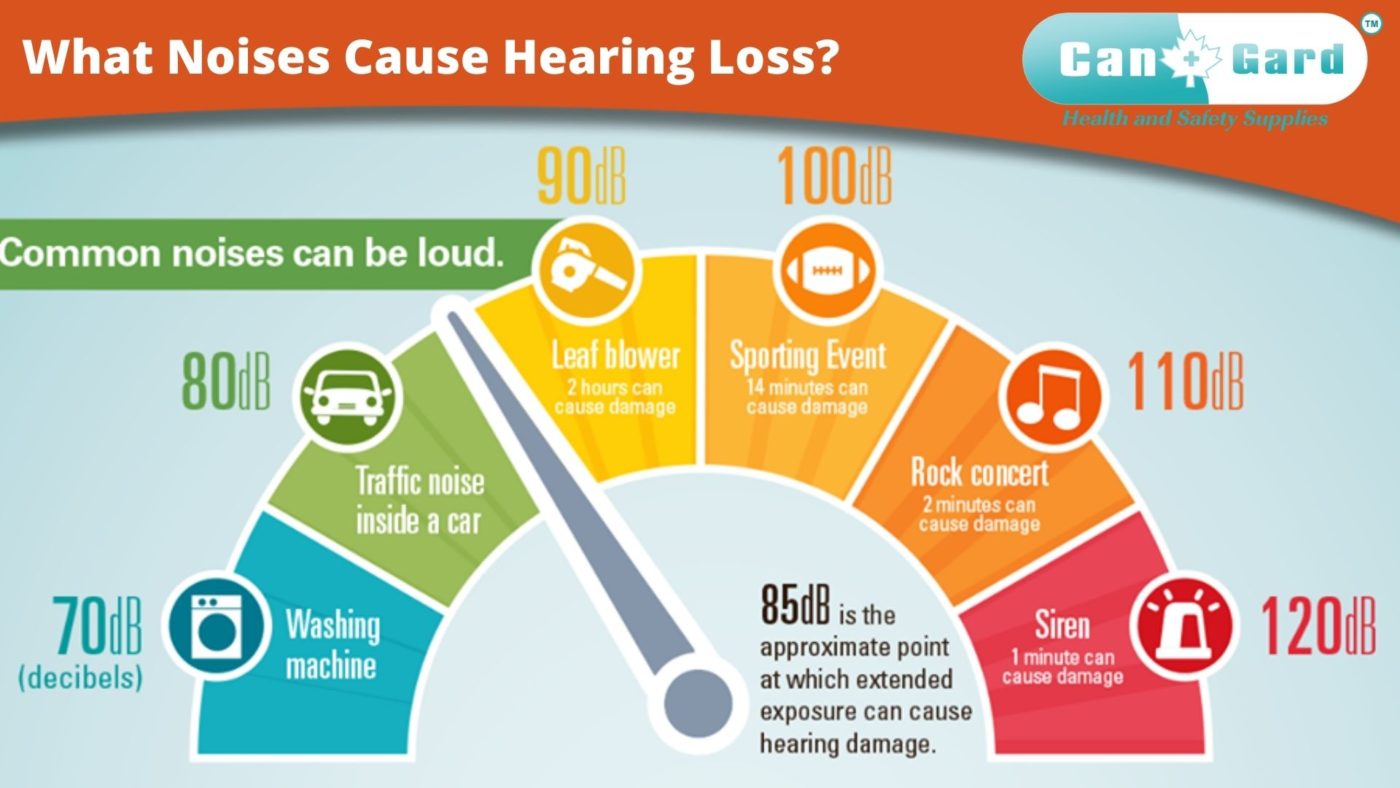Hearing Protection
What Noises Cause Hearing Loss?
The most common cause of hearing loss is continuous exposure to loud noises. Noise-induced hearing loss occurs when sound waves damage the tiny hair cells in the inner ear. The louder the noise and longer you are exposed to it, the more likely you will experience hearing loss.
Noise-induced hearing protection can help prevent your ears from being damaged by harmful sounds such as construction sites or lawnmowers. Several different types of protective gear can be used depending on what kind of noise you’re protecting your ears from.
In this article, we discuss some simple ways to protect yourself against getting noise-induced hearing loss!
What is noise-induced hearing loss?
Noise-induced hearing loss is an auditory disorder caused by long-term exposure to loud noises. When exposed, the tiny hair cells in the inner ear vibrate and are damaged by sound waves. The more audible a noise, or for longer it’s been playing, the more likely you will experience hearing loss if unprotected.
These noises are typically louder than 85 decibels.
How is noise-induced hearing loss treated?
Luckily, there are several ways to prevent hearing damage from getting worse or worsening over time. For example, if you work in construction and want to protect your ears against loud noises such as pneumatic drills, we recommend wearing NRR or SNR-rated earplugs.
Additionally, wearing earplugs in loud environments is common to prevent hearing loss and keep your ears safe from noise-induced damages. If you’re unsure of the NRR rating on an item, always go with a higher one because it’s better to be safe than sorry when it comes to our ears!
##Decibels
Decibels are a way to measure the intensity of sound.
The chart below shows a few different types of noises, their dB rating, and how an average human ear would perceive them:
– Startling noise – 120dB (can cause hearing loss)
– Motorcycle at 25 ft – 95dB (may cause hearing damage over time)
– Quiet is at 40 dB
– TV at 50% – 40dB
– Conversation is 60dB
If you’re not sure how loud something should be or what noise could cause hearing loss, we recommend that you purchase some earplugs to wear on your next trip! It will keep both of our ears safe and healthy. Remember: Decibels are the way to measure the intensity of sound.
##Loud Noise Can Cause Hearing Loss Quickly or Over Time
Hearing Loss can result in a single loud noise called “startling noise,” or it can happen over time.
Startling Noise: Loud noises, such as those from firework displays and thunderous concerts, are considered startle sound events that may cause hearing loss in a single exposure
Noise Over Time: The loudness of these sounds is measured on the dB. The longer the exposure time, the more damage it can cause.
2. How can you avoid it?
You can avoid it by wearing hearing protection in loud environments.
There are
3. What are some common causes of NIHL?
Some causes are a result of exposure to high-intensity sound levels for an extensive amount of time.
Noise-induced hearing loss is caused by prolonged exposure to loud sounds such as power tools, heavy equipment, and loud music.
If you want to protect your ears against these noises, we recommend wearing NRR or SNR-rated earplugs.
4. Signs and symptoms of NIHL
The signs and symptoms are ringing in the ears, a feeling of fullness or pressure in your ears, and sometimes pain.
The severity of these symptoms will depend on how loud the noise was that caused the hearing loss.
Some people may not feel any signs until it’s too late, and they have permanent hearing damage from high volume exposure. If you already experience ringing in your ears or the feeling of fullness after hearing loud sounds, it is essential to evaluate a professional.
If you experience these symptoms without experiencing high volume exposure, then there may be another cause, and your ears should be examined as soon as possible.
This could include infections (such as otitis media), allergies causing congestion.
5. Treatment for NIHL
The treatment for NIHL depends on the severity of your hearing loss. There are no treatments for a mild or moderately severe hearing loss that can be done at home in many cases.
You will need to wear ear protection when exposed to loud sounds in these situations to prevent further damage and preserve whatever remaining hearing you have left. If it’s challenging to avoid loud sounds, hearing aids might be helpful.
Important for People to Read:
Noise exposure can cause NIHL, which is permanent damage that cannot be reversed or cured. If you believe you may have some level of hearing loss and are experiencing the symptoms mentioned above, it’s essential to get an evaluation by a professional immediately so they can
6. Prevention tips to reduce the risk of developing NIHL
Here are prevention tips for noise-induced hearing loss.
*Avoid loud sounds when possible
*Wear ear protection or headphones when exposed to high sound levels for a long time, like at concerts and construction sites (even if it feels uncomfortable). Certain types of earplugs can help you sleep better while reducing the volume of outside noises.
*Use NRR or SNR ratings to determine which hearing protection is best for you.
*Keep the volume on your MP player or other devices at a safe level
*Limit time spent using earphones and headphones, including when listening in bed before sleeping
If you experience ringing in your ears after being exposed to loud noises, seek medical treatment immediately, as this could be

